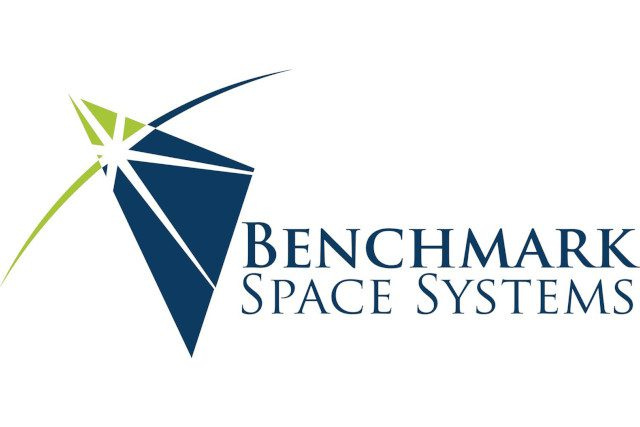SmartAIM Autopilot for Satellites Introduced by Benchmark
The commercial launch of SmartAIM … the first-ever autopilot for satellites … has been announced by Benchmark Space Systems at the SmallSat 2023 conference in Utah.
“Large constellations aren’t technically or economically feasible in today’s busy orbits if they’re being controlled with traditional manual and multi-step procedures."
Chris Carella, Benchmark Space Systems
SmartAIM (Smart Advanced In-Space Mobility) is a driver assist control system capable of managing highly precise satellite maneuvers and travel through increasingly congested space.
The new propulsion solution features an onboard software control solution embedded in Benchmark’s non-toxic chemical, electric and hybrid propulsion systems. Having a more intelligent and integrated mobility solution extends the guidance, navigation, and control (GNC) capability of any spacecraft to offer unprecedented tiers of autonomous flight – ranging from assisted ‘cruise control’ for station keeping and payload pointing to full-blown maneuver planning and execution for collision avoidance.
SmartAIM is now available in Benchmark’s common control system across product lines and will reduce operational costs and lead times associated with mission planning and system integration.
Benchmark also announced a strategic partnership with Kayhan Space to integrate the company’s Pathfinder spaceflight safety service with the SmartAIM platform. Pathfinder’s capabilities for optimized maneuver planning and autonomous space traffic coordination provide a unique and complementary offering when paired with Benchmark’s SmartAIM propulsion solution. This alliance will ultimately drive the full value of the technology for collision avoidance and sustainable space operations. Benchmark plans to add Kayhan and other SSA companies to its extensive network of partners with complementary technology and services.
First SmartAIM Flights Planned for 2024
Benchmark has designed, developed, and thoroughly tested the intelligent propulsion offering, in part with funding and R&D support from the Air Force Research Lab (AFRL), and expects the first SmartAIM-assisted flights to launch in 2024. The cooperative effort among Benchmark’s commercial and government partners has focused on eliminating the laborious, iterative manual satellite control functions, which have become cost prohibitive and unmanageable for many operators as their constellations dramatically scale.
“The Low Earth Orbit ecosystem is not sustainable without driver assist technologies. Benchmark is in full production mode on propulsion systems for several government and commercial missions. Operators are not just looking to Benchmark to provide propulsion hardware, but a full life cycle partnership and innovative bundled mobility solutions to maneuver safely and confidently through space,” explained Chris Carella, Chief Commercial Officer for Benchmark Space Systems. “Large constellations aren’t technically or economically feasible in today’s busy orbits if they’re being controlled with traditional manual and multi-step procedures. SmartAIM makes watching over constellations of dozens to hundreds of satellites far more manageable and sustainable. The operational equivalent of falling asleep at the wheel could lead to a Kessler scenario that wipes out a trillion-dollar global infrastructure.”
Benchmark’s intelligent guidance, navigation and control solution runs on multiple streams of real-time data, from onboard sensors and data relays, that provide vivid situational awareness. The low-latency information feeds and onboard processing include the state of the propulsion system and satellite, where it’s been, where it’s headed, and efficient travel routes around potential issues or threats nearby or on the horizon.
“The game-changing benefits of having SmartAIM tightly integrated with Benchmark’s propulsion systems, the host spacecraft resources, and additional effectors, aids in scalability, performance efficiency and sustainability, and operator peace of mind,” outlined Jeff Gibson, Benchmark’s Head of Engineering and a member of its experienced GNC team, with lunar lander, EVTOL, and guided munitions development among its storied successes.
“Operators can lean on Benchmark’s unrivaled propulsion expertise and not get bogged down with the technical details needed for scalable mobility operations in space,” Gibson added. “The efficiency of the driver-assist and autopilot modes enable operators to get a lot more mileage out of their propulsion systems – driving up mission sustainability while reducing overhead.”
“The Kayhan Space mission is all about empowering satellite operators with the information and streamlined autonomous capabilities they need to safely and efficiently navigate through an increasingly congested space environment,” said Siamak Hesar, Co-Founder and CEO of Kayhan Space. “We are thrilled to partner with Benchmark Space Systems and integrate with their SmartAIM intelligent propulsion solution to maximize safe and sustainable space operations.”
Established propulsion providers are at an advantage when developing GNC capabilities. The integration goes beyond hypotheticals and is designed with the detailed specificities of existing avionics and propulsion systems for maximum optimization. By working in unison with additional effectors like momentum wheels, torque rods, and ACS thrusters – the GNC framework is designed for optimizing each maneuver, whether that be for power conditions, fuel preservation, or speed.
The company is focused on providing non-toxic chemical, electric and hybrid propulsion systems capable of enabling in-space mobility and the emerging space economy. Benchmark is currently fulfilling contracts for dozens of its new Xantus electric metal plasma thrusters (MPTs), with some on the verge of playing a key role in upcoming in-space servicing, assembly, and manufacturing (ISAM) satellite docking demonstration missions.
The company is also producing hundreds of its 2N Lynx bi-propellant (HTP + fuel) thrusters this year to meet increasing demand for low Earth orbit (LEO) and cislunar missions.
(Source: Benchmark Space Systems news release. Image provided)





